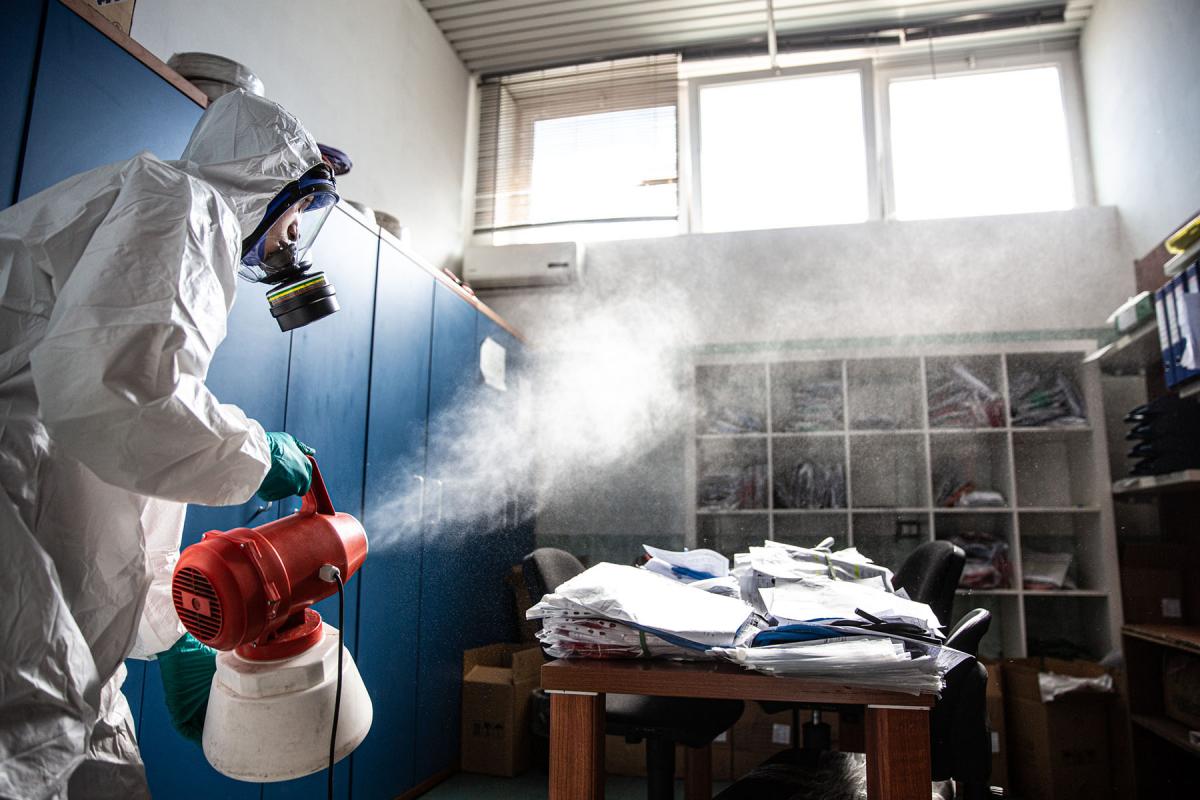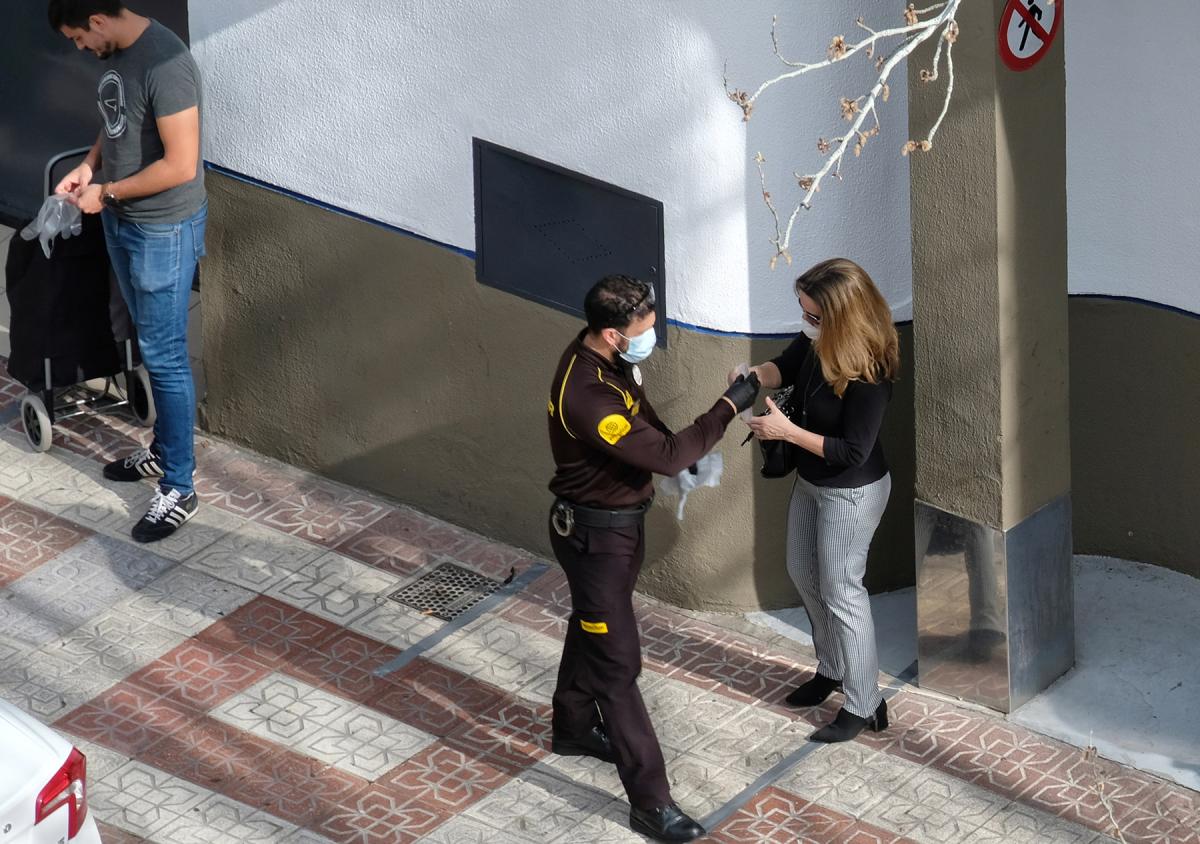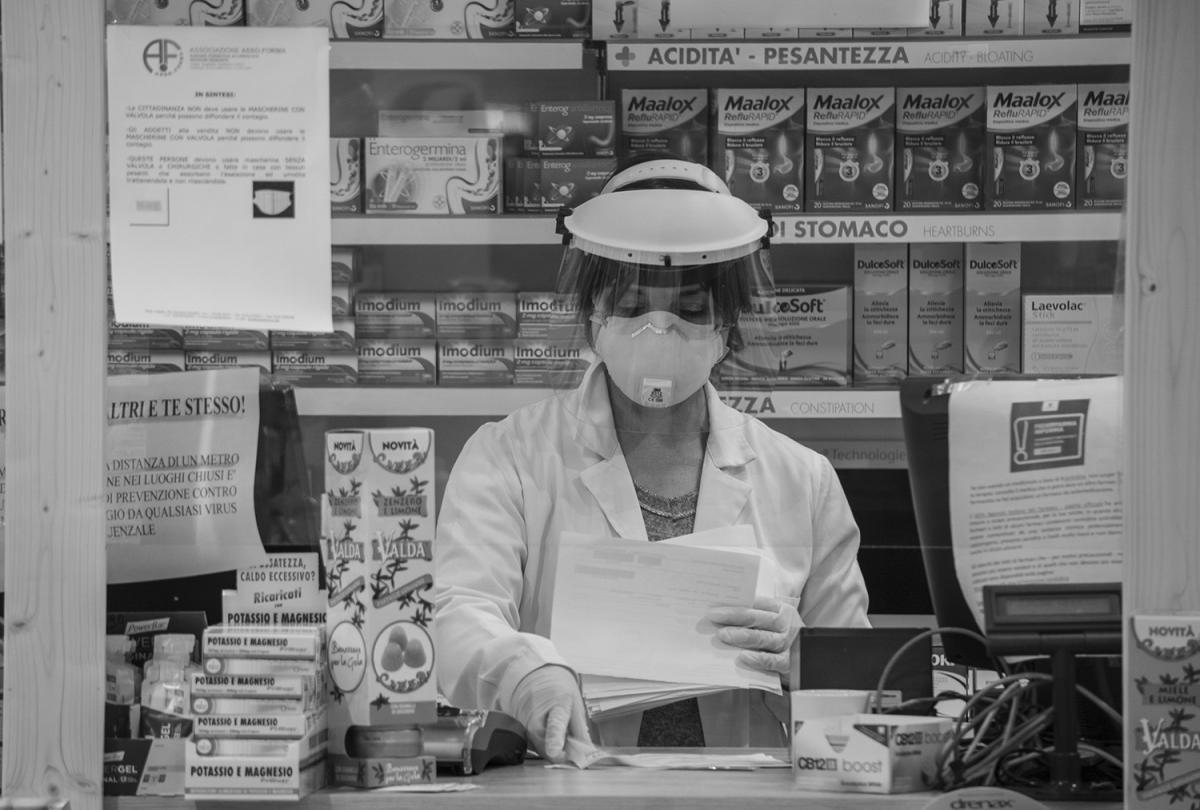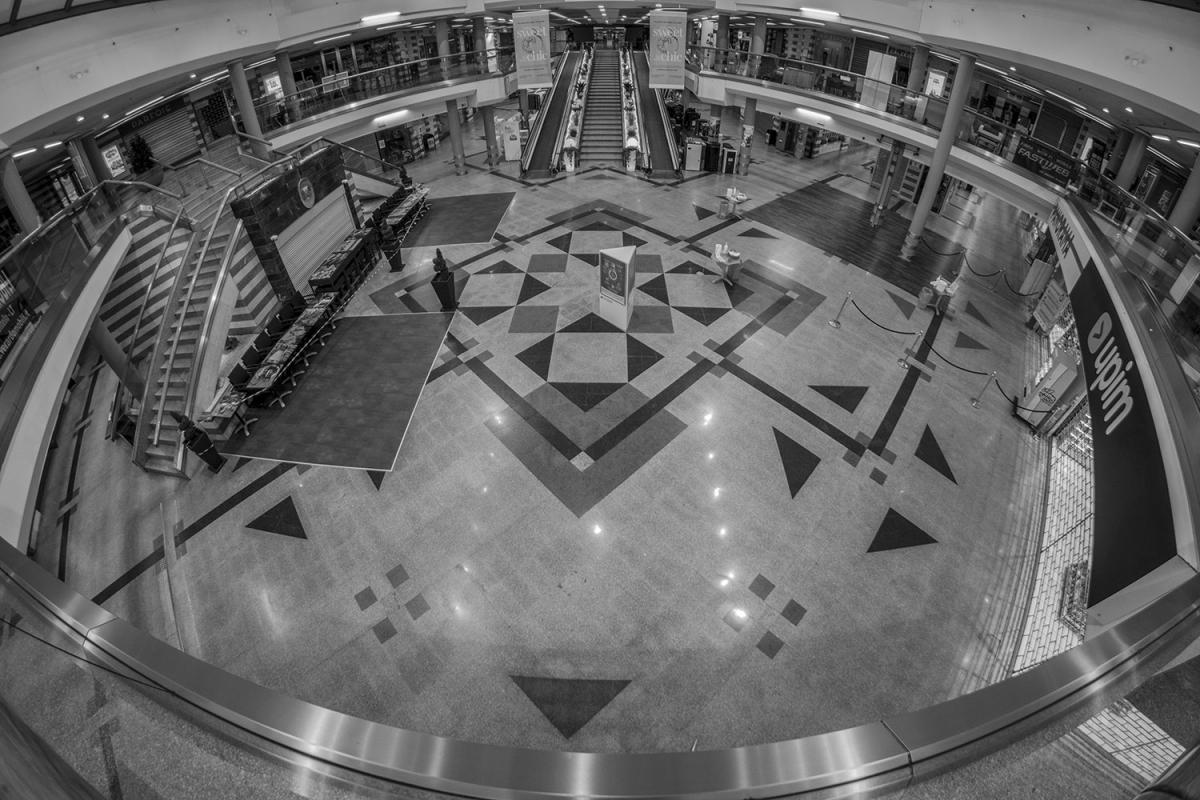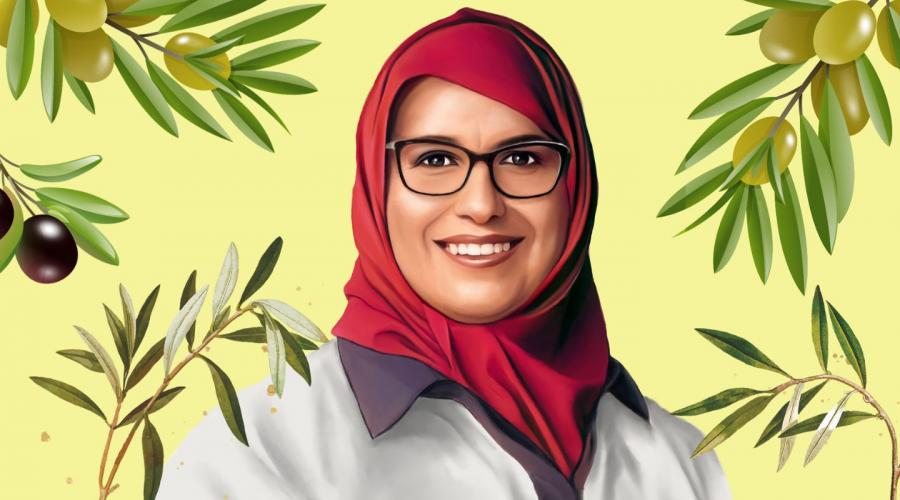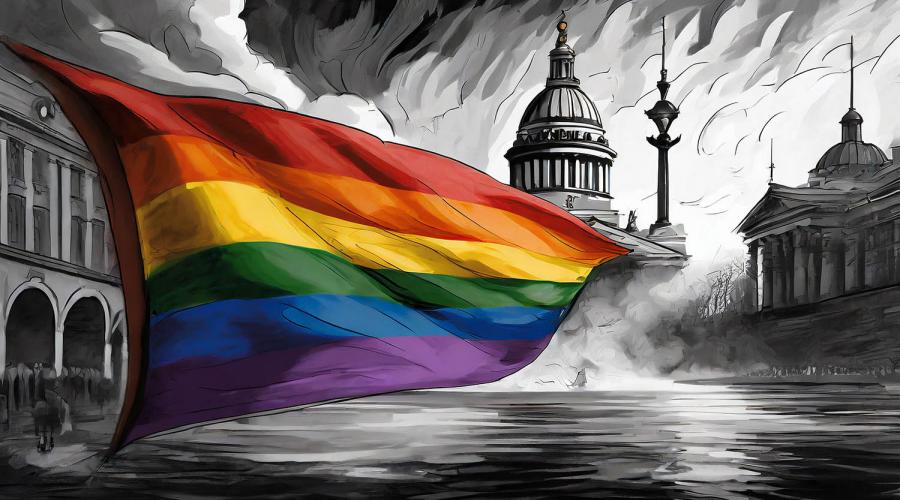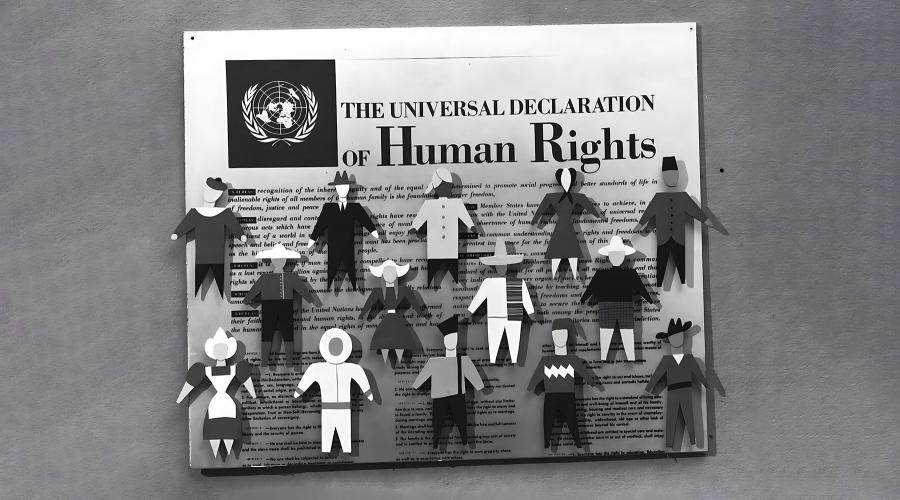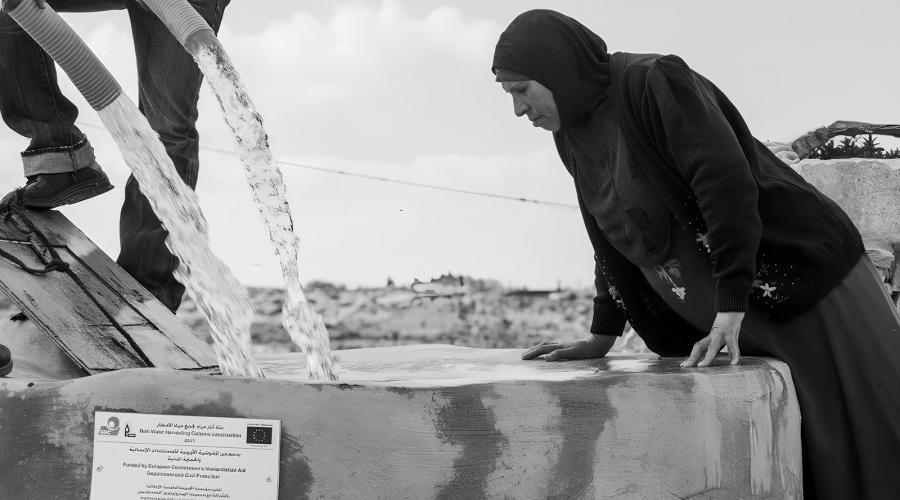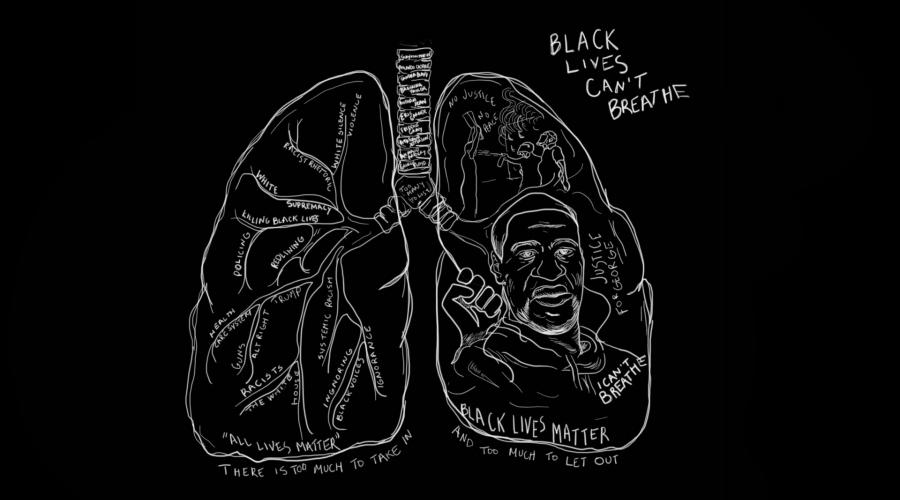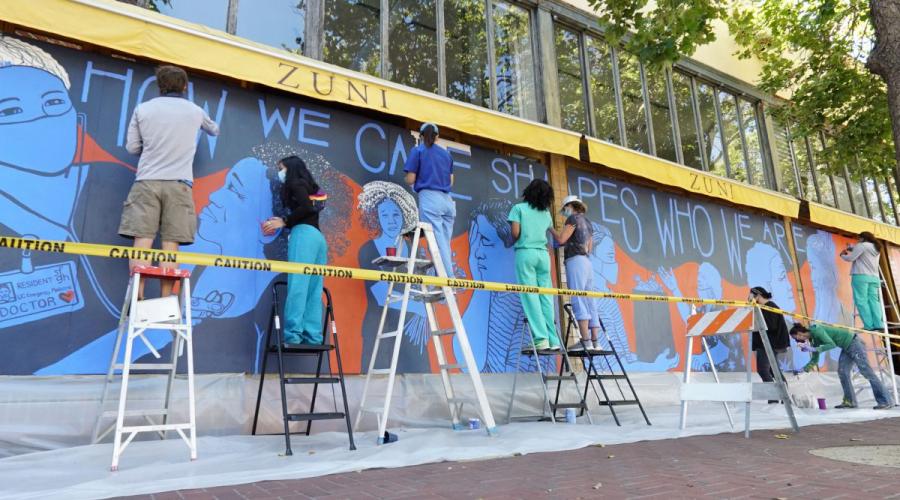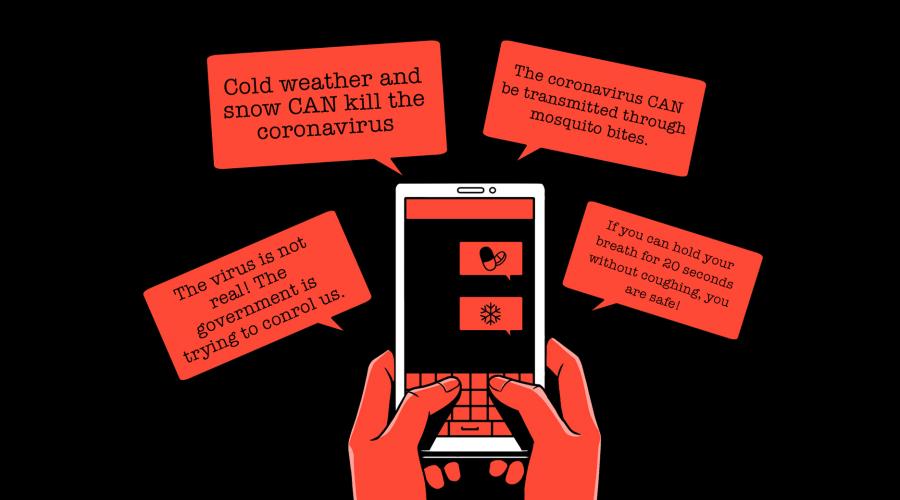Re-adjusting the focal point: how the pandemic has given new depth to photographers across the globe
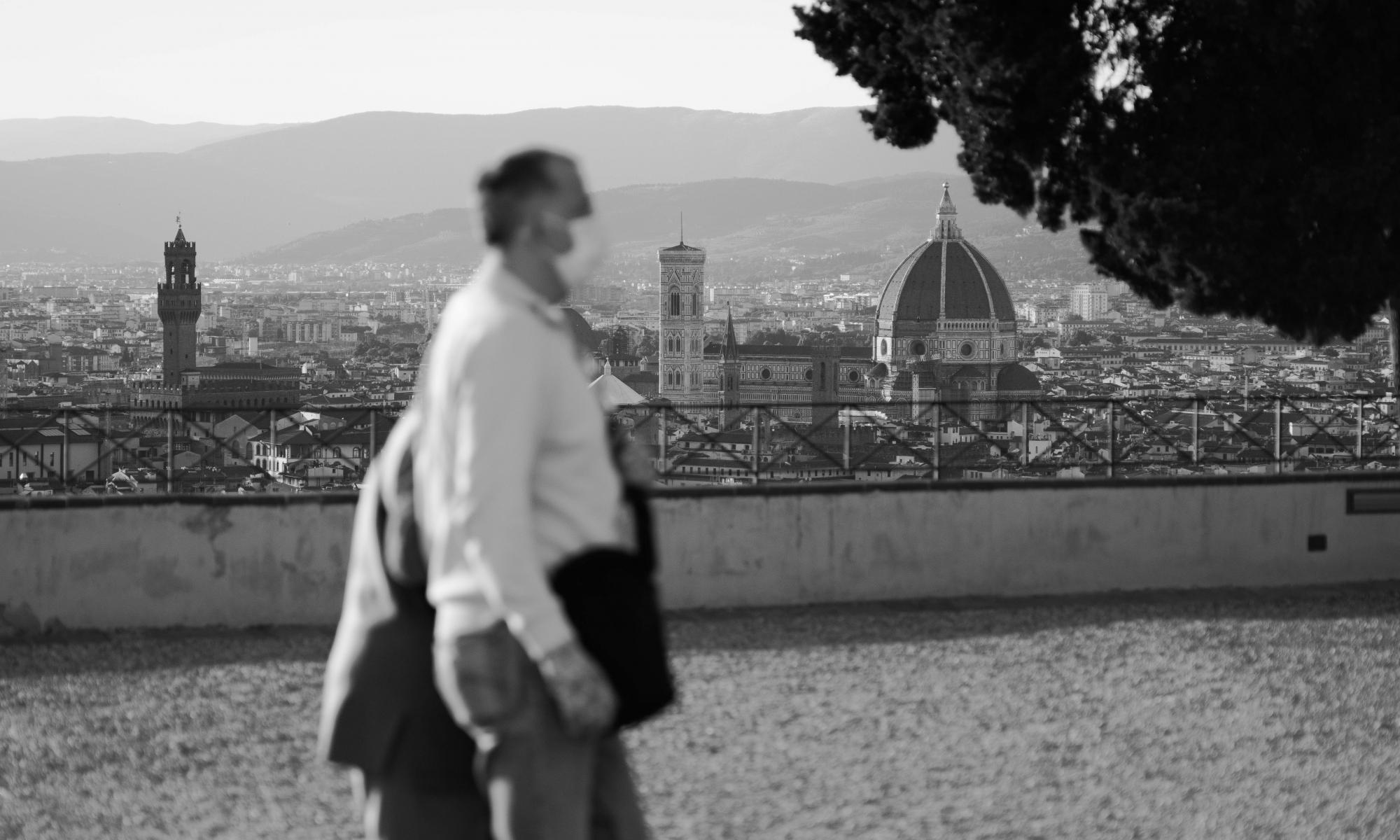
One of the lonely visitors of Piazzale Michelangelo in Florence during Italy's national lock down, at a time of the year usually filled with tourists.
The lockdowns that were enforced all over the world, in an attempt to curb the COVID-19 pandemic, put a complete halt on humanity and the hustle and bustle of everyday life. They changed the landscape of the world as we knew it and marked the beginning of a new world order. They affected almost every industry in the world and forced us to stop and to reflect.
In the field of photography empty streets, masked faces, and social distancing rules gave photographers a whole new palette to work with and pushed them to look beyond their usual subjects and rediscover themselves and their surroundings.
In this photo essay, photographers from all over the world share their experiences and learnings from a planet unmasked by COVID-19.
Alessandro Castiglioni | Milan, Italy
I live in Milan, Lombardy. It was the most affected region, and perhaps the Italian city that suffered under the lockdown the most. Considered the economic engine of Italy, our usually strong tourism industry has unfortunately suffered a strong blow. Many professions have been brought to their knees, especially those related to tourism and hectic city life, from restaurants, museums to events and fashion—in short, the things that Milan, the capital of Lombardy, lives for. Being the photographer of events in this reality has put a strain on my person. Hopefully, I will keep my head held high and try to keep alive my passion for what I do in the hope of a growing global restart.
Below are two images that were shot during some sanitisation interventions I was called to document.
Guys at work.
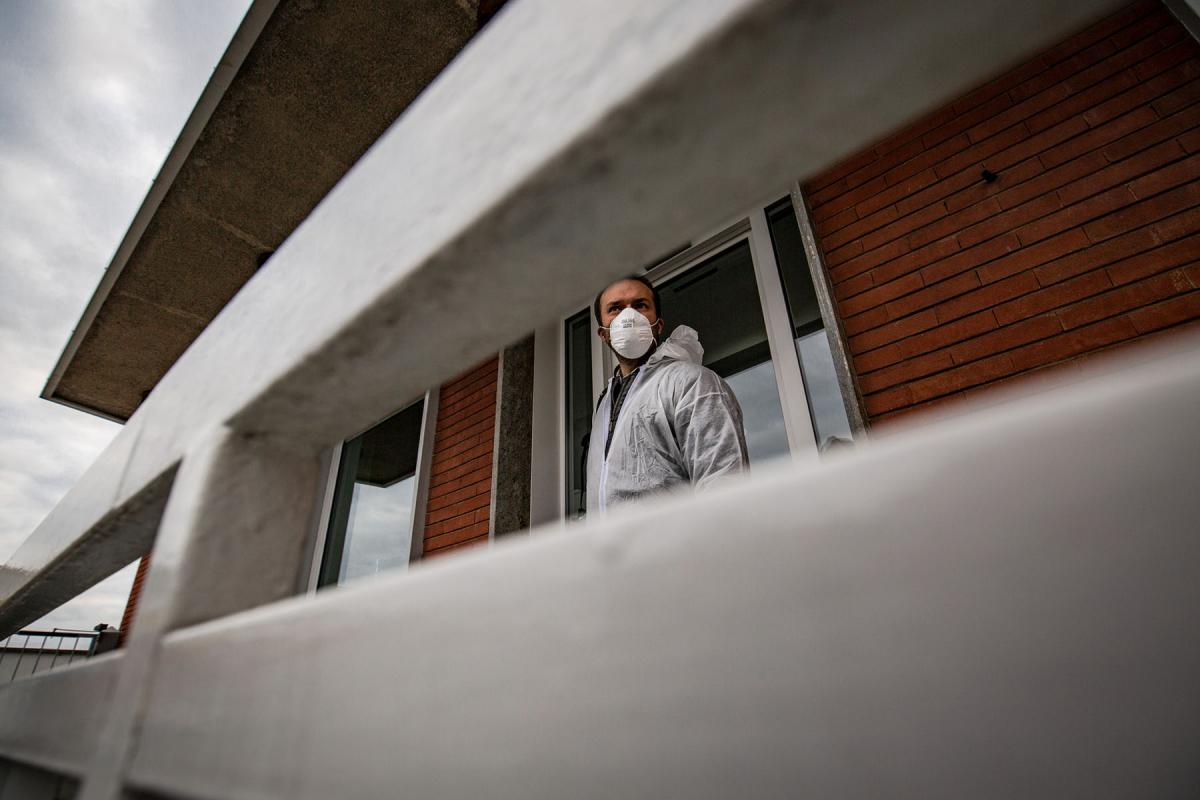 Afraid of COVID-19.
Afraid of COVID-19.
Laurence Bouchard | Tokyo, Japan
Before the pandemic, I was following things in Wuhan and was reading and watching YouTube videos for about three to four hours a day trying to make sense of the virus. After a while, I realised that my focus on the virus was having a negative effect on me so I started to limit how much I looked into it.
The lockdown in Tokyo resulted in the closure of a lot of things excluding supermarkets and restaurants in the daytime. For me, it meant that the majority of my work switched to online. When not working, I had a lot more time to spend with my three-year-old daughter as her kindergarten closed. I’m British and [my daughter] goes to a Japanese kindergarten so her Japanese is much better than her English. Prior to the lockdown, we often had trouble communicating; however, I felt we really bonded during the lockdown, and her English improved. Although the government advice was to stay home, it’s not so easy with a kid. On some days we cycled around the city, took photos, and topped up on vitamin D. It’s strange but in some ways, I’ll look back on [the days of lockdown] with fondness.
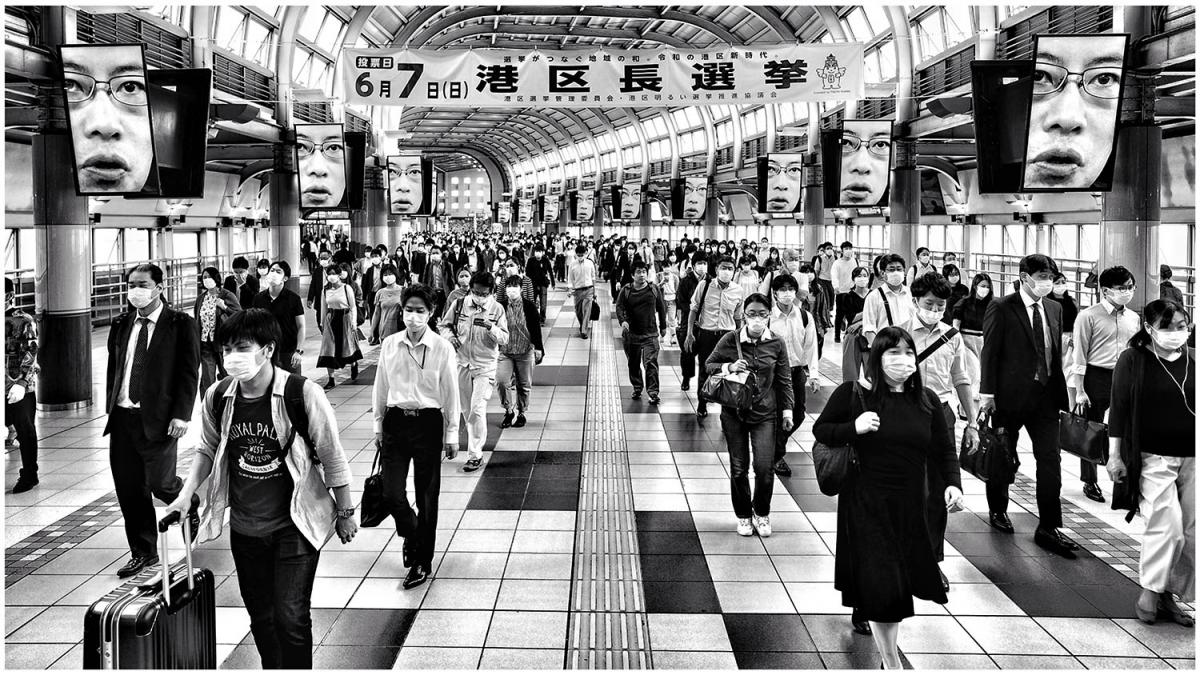 1984.
1984.
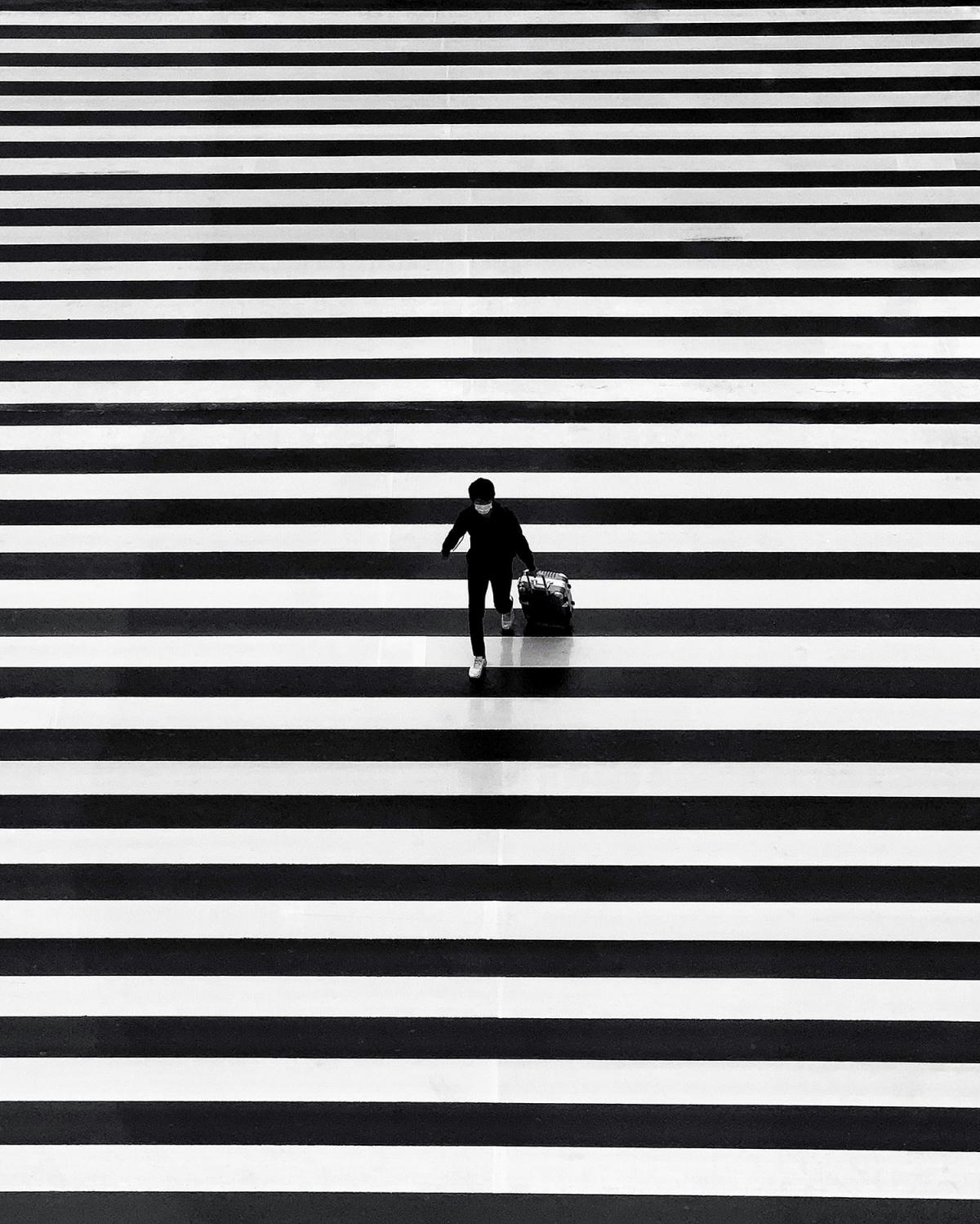 Vacant vacation.
Vacant vacation.
Fernando J. Nestares | Granada, Spain
I live in Granada, Spain. The main impact of home confinement was to see empty streets at all hours, silence in the absence of vehicle traffic, and the suspicion that was observed among people if you went out to make an urgent purchase. As a photography enthusiast, I resorted to using the telephoto camera to capture the world outside from inside my home.
Supermarket customers keeping their distance.
Handing out protective gloves before entering the supermarket.
Giuseppe Simeon | Florence, Italy
In the turn of barely ten days, the city of Florence voided of all its visitors and all those many tourists that have become an integral part of the city since the last two decades or so. The economic crisis is dramatic and is felt every day more; but those in their 40s and above were also surprised to discover again the city of their childhood memories, of empty old streets and quiet beauty that gave us such a strong sense of belonging.
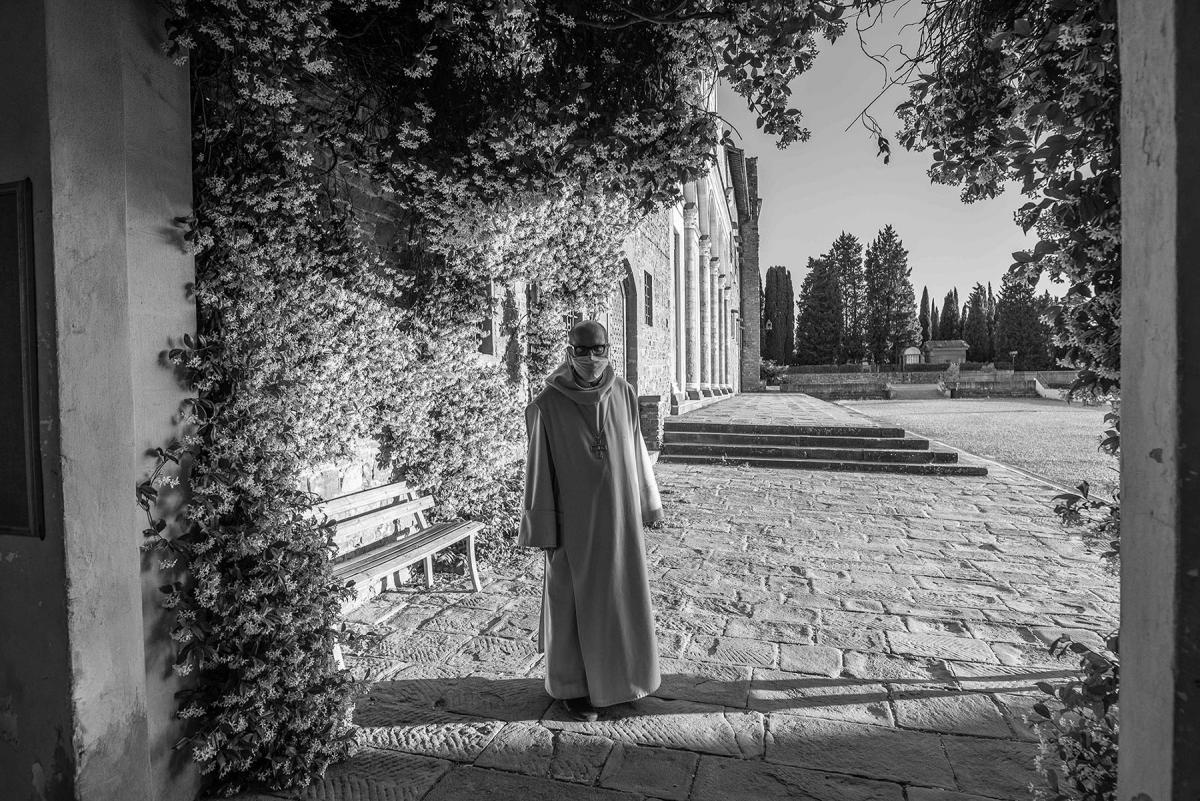 One of the monks from the Olivetans order outside the unusually deserted monastery of San Miniato al Monte in Florence, during Italy's national lockdown.
One of the monks from the Olivetans order outside the unusually deserted monastery of San Miniato al Monte in Florence, during Italy's national lockdown.
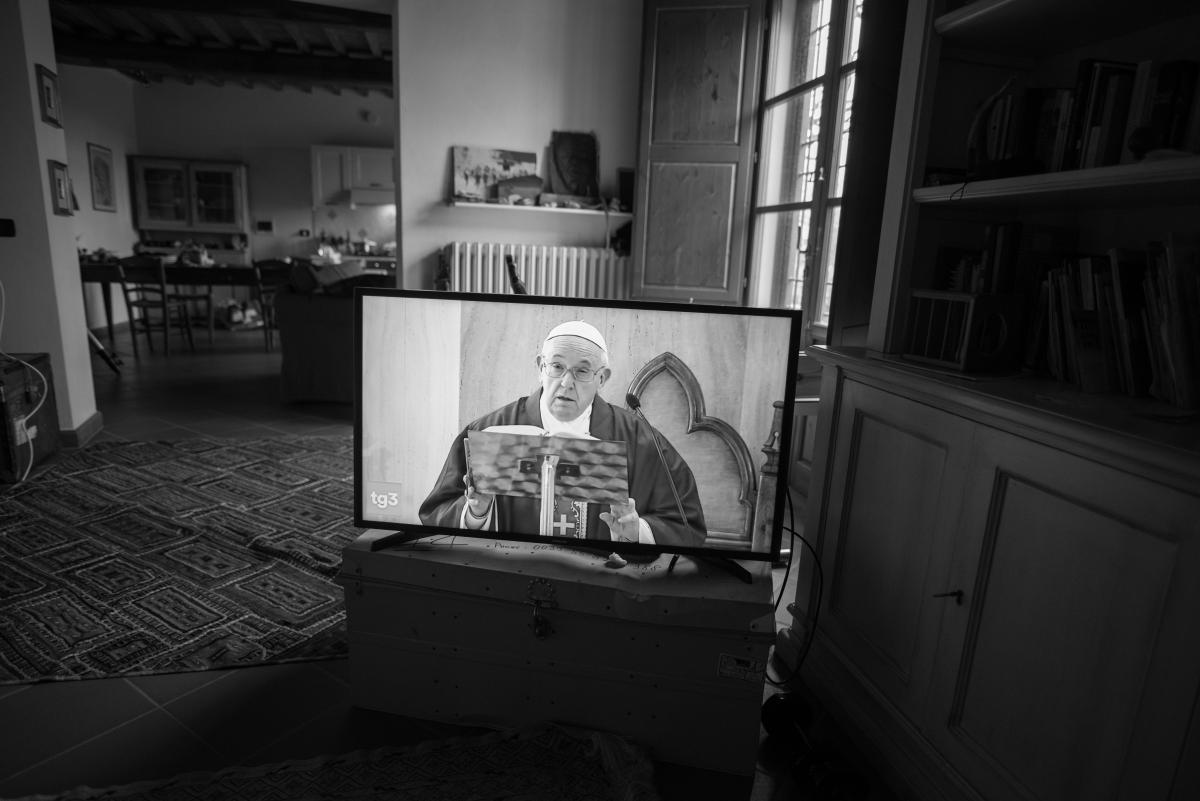 Pope Francis on national TV during the first week of Italy's nationwide lockdown, inviting to 'pray for Italy's leaders during these difficult days.
Pope Francis on national TV during the first week of Italy's nationwide lockdown, inviting to 'pray for Italy's leaders during these difficult days.
Adli Wahid | Melbourne, Australia
There are a lot of stories and lessons learned from the COVID-19 pandemic. One of the things I will always remember about the pandemic is the sacrifices made by many, especially the healthcare workers who have put their lives at risk so that the rest of us can survive.
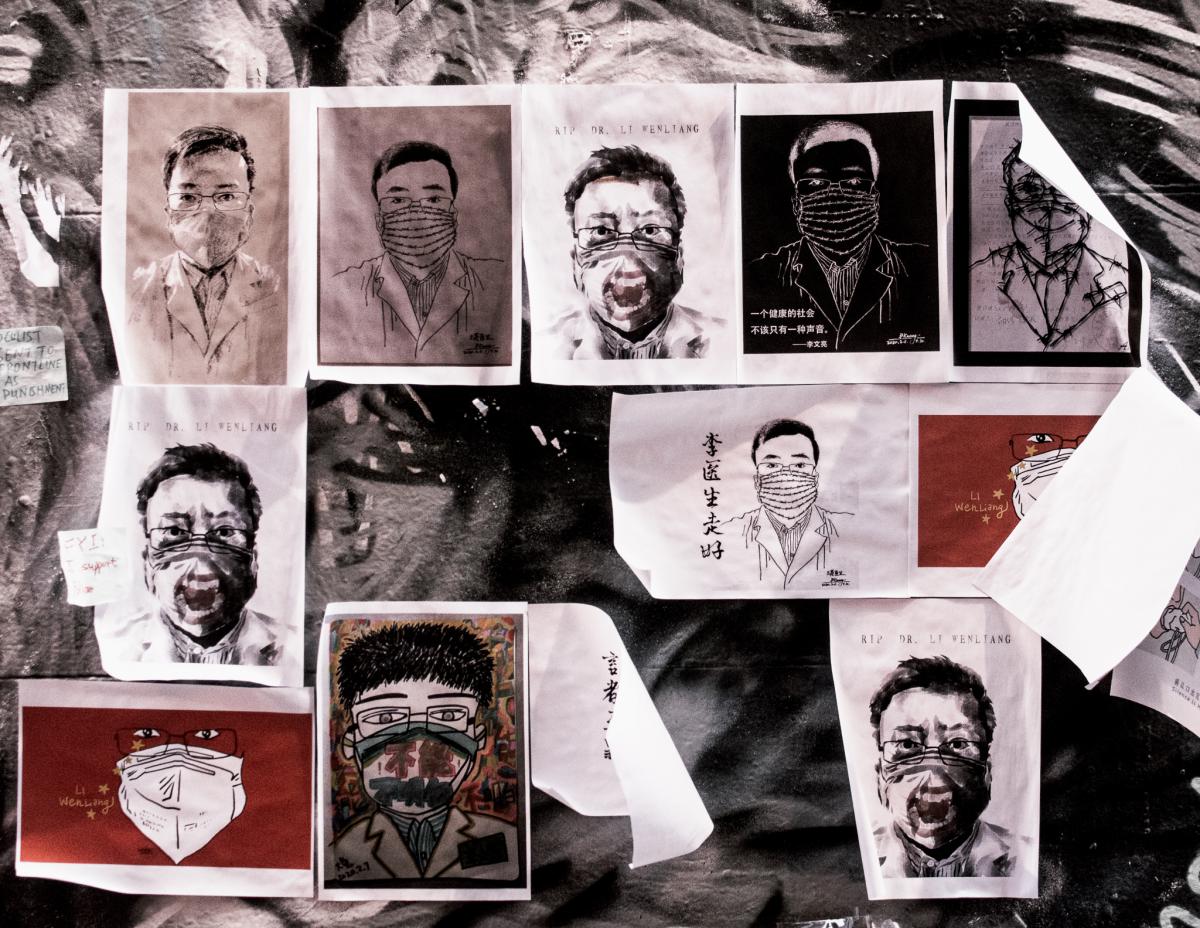 Posters of Dr Li Wenliang
Posters of Dr Li Wenliang
This photo was taken in Hosier Lane, Melbourne—perhaps my last photography outing before the lockdown started. It shows the late Dr. Li Wenliang, who was the first to warn authorities about the virus.
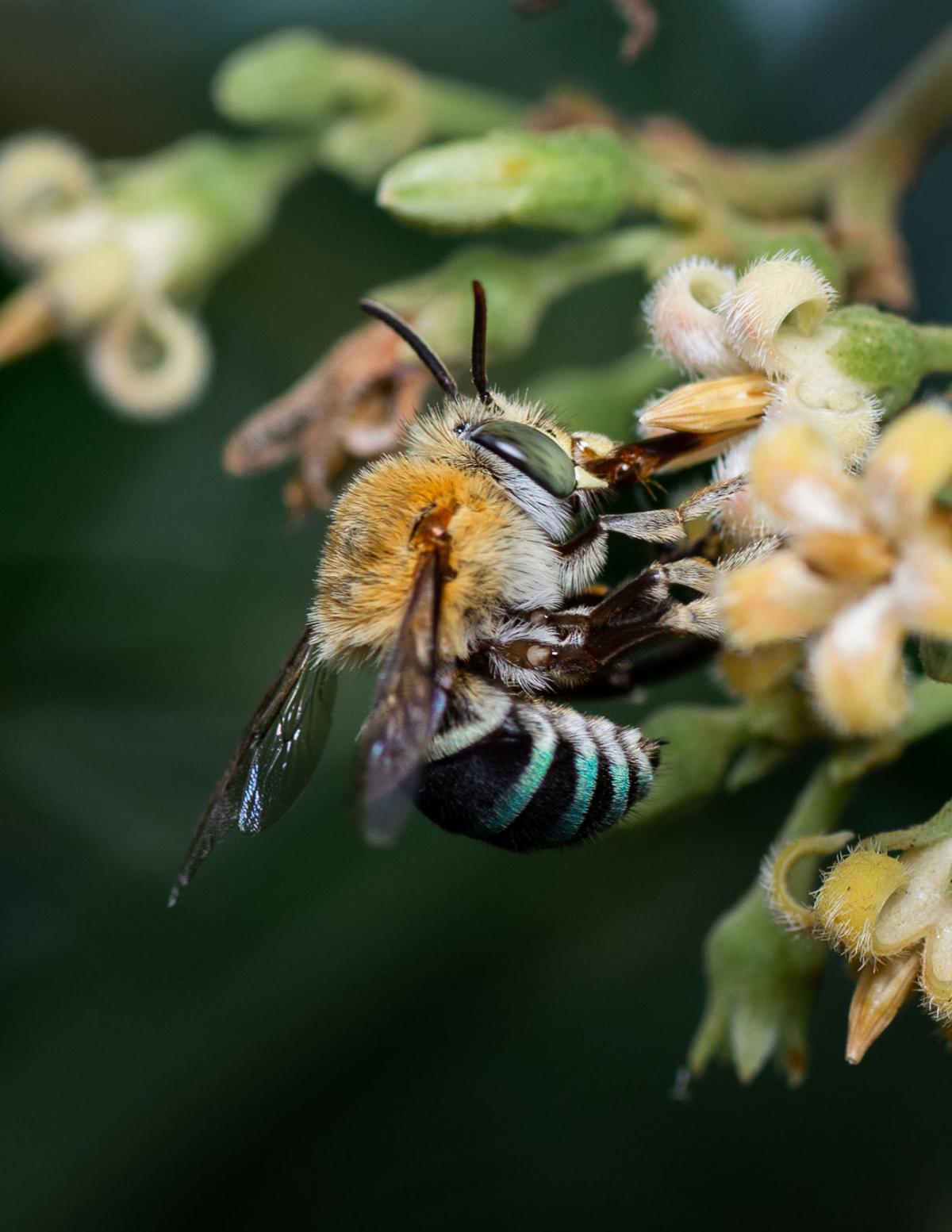 Blue-banded bee
Blue-banded bee
The lockdown initially slowed down my photography activities but that did not last long. While I couldn’t go out and about on the streets, I found an amazing, colourful world that I hadn’t noticed before right in my backyard. Believe it or not, life goes on in the insect kingdom and I started capturing photos of bees pollinating plants and collecting nectar. They are really beautiful creatures, especially the native ones such as the blue-banded bees pictured above. The pandemic has certainly made me appreciate the little things in life.
Lea Kaehler | Münster, Germany
Mostly, I feel lonely. The people close to me suddenly feel far away. I feel far away. This is not me. The situation does not allow myself to be me and I have started to miss myself. It is a weird feeling I have never felt before. A grey feeling, without contrast. But maybe it will help me clarify who I am as a person and who I want to be.
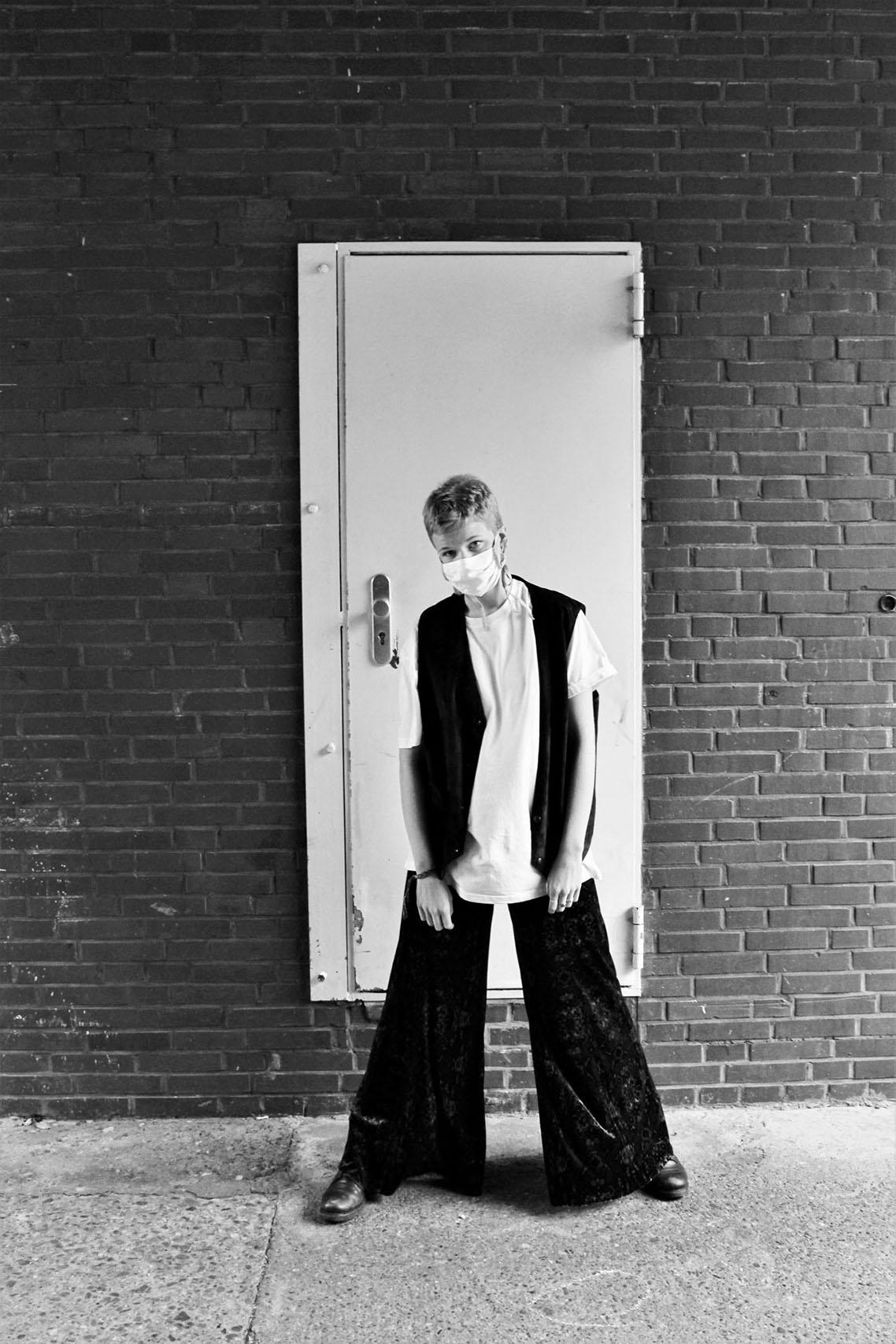 Quiet resignation
Quiet resignation
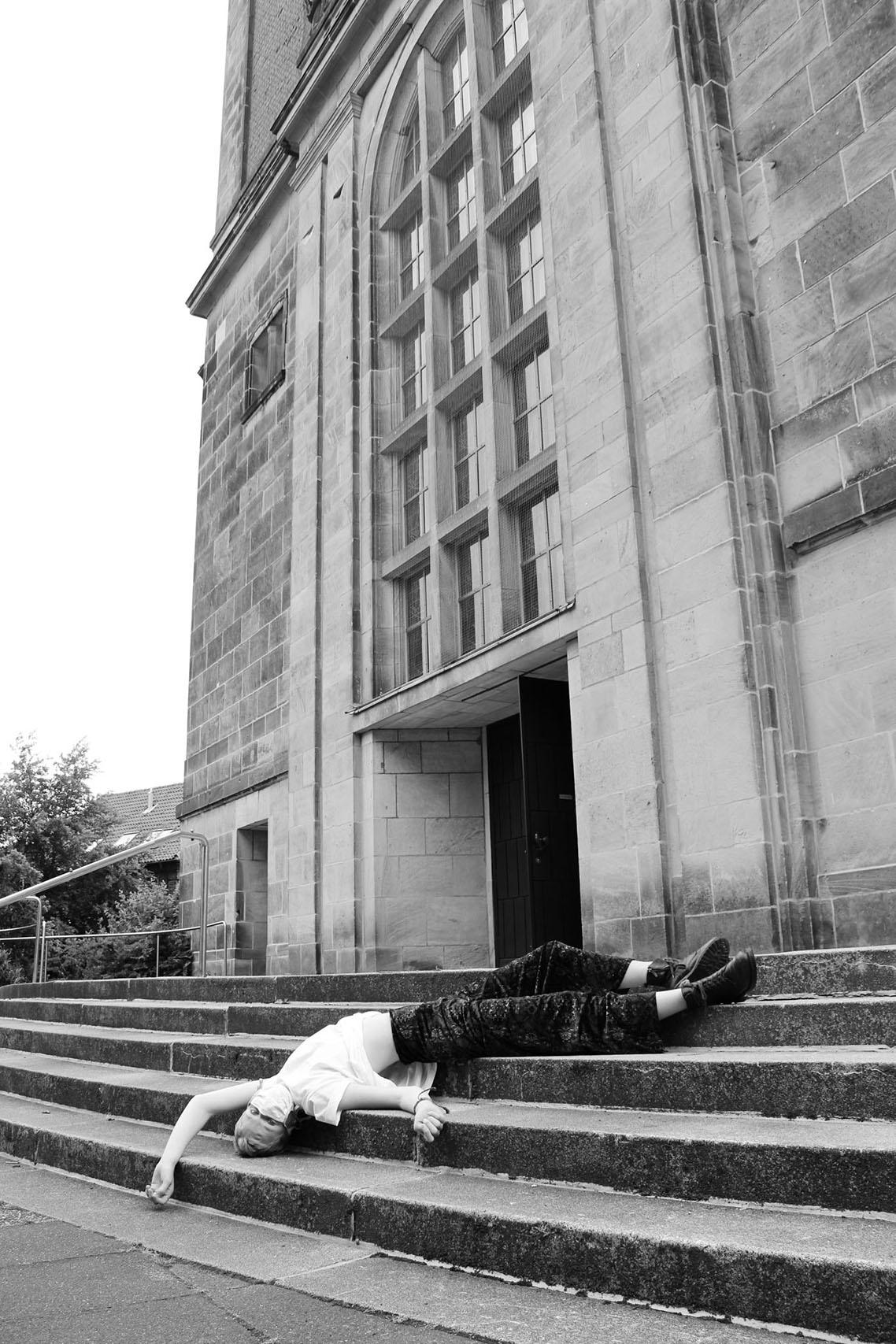
Impuissance
Bennett Tobias | Bielefeld, Germany
As a self-employed entrepreneur, I’ve been working from home for many years. That part of COVID-19 and the lockdown here in Germany didn’t affect me. I have a comfortable home office. I have a routine. I think what changed the most was the realisation that I truly am a free person. Before, no one could tell me that I wasn’t allowed to go to the gym, or take a walk in the park, or sit at a cafe and read a book. After having many (necessary) restrictions in place, I think I value my independence, autonomy, and personal freedom just a bit more. However, despite the sometimes claustrophobic feeling, I’ve been happy to give up my personal freedom for the good of those around me and the people of the community in which I live, work, and play.
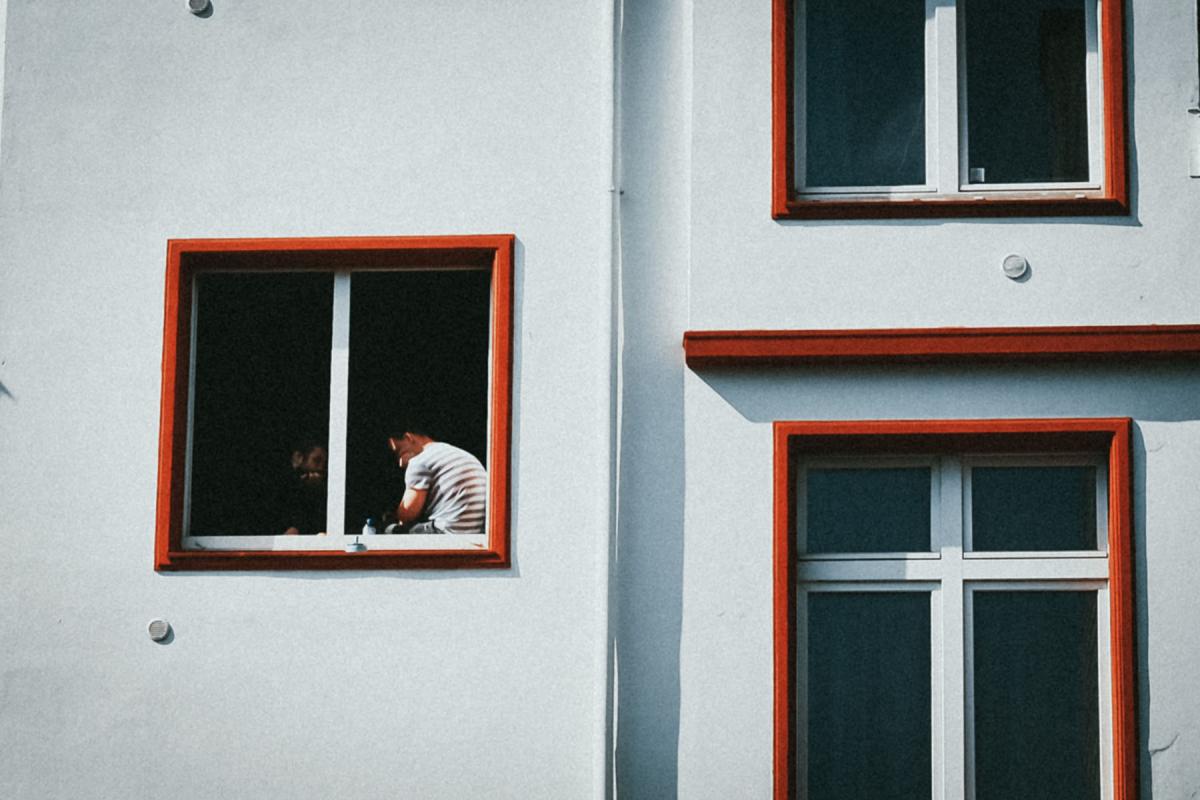 Two guys in the window
Two guys in the window
After months of stay-at-home orders, these two friends sum up the collective feeling well—head in hands, eyes downcast, sitting as close to the fresh air as possible.
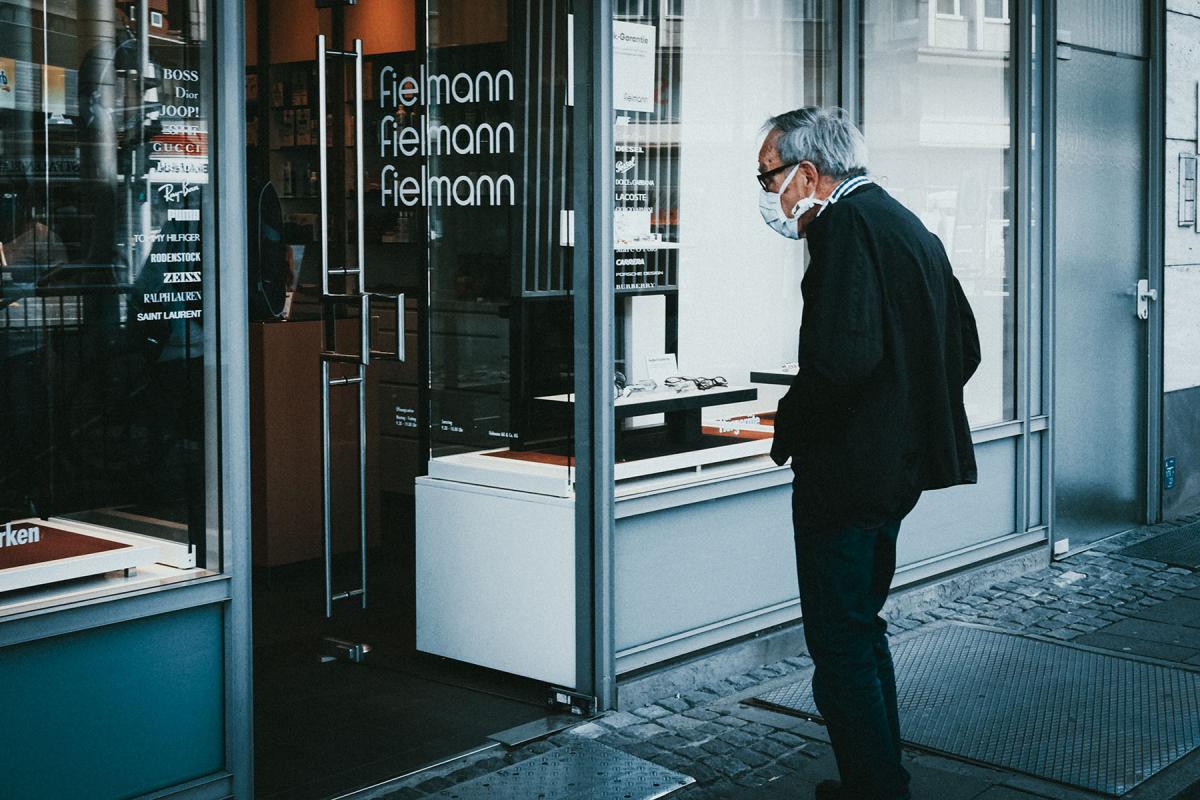 A man standing outside of a shop
A man standing outside of a shop
Rain or shine, social distancing rules the day, with even the most basic of daily chores and errands not escaping effect.
Aristodemo De Cesaris | Latina, Italy
I have been working in this mall in Latina for 22 years. I started in March 1998 and suddenly seeing a place [that was always] full of people closed was very strange.
I work in a pharmacy that has never stopped so my daily routine has remained the same as before. I was a little afraid at the beginning of the pandemic but I didn't give into [the fear] and took courage and respected all the safety protocols to avoid the contagion.
The work
During the lockdown, it was strange to go around the mall with the shops closed, many lights off and only the sound of my footsteps. Sometimes I came across someone from a distance and avoided following the same trajectory [as them] in order not to come into contact. I immediately had the idea of bringing my reflex camera with me and documenting this historical moment through reportage photography—I took over 400 photos in the three months of lockdown.
Solitude
It was a surreal experience but I have to be honest, being a misanthropist, I enjoyed crossing places that are usually full of people and finding them completely at my disposal.
Ewien van Bergeijk-Kwant | Netherlands
I have purposely chosen to look for images of 'Corona kindness' to spread hope in this time of fear, despair, and confusion. This COVID-19 time has ‘forced’ me to search for treasures of hope and beauty in my home country, the culture I am often too familiar with. Not being welcome or able to freely photograph what I want, has taken me to a deeper level of creativity, search and appreciation for RAW images of life, with its beautiful, but also difficult moments. Photography has become a therapy to process ‘the changes’ we are facing each day while keeping my focus upward.
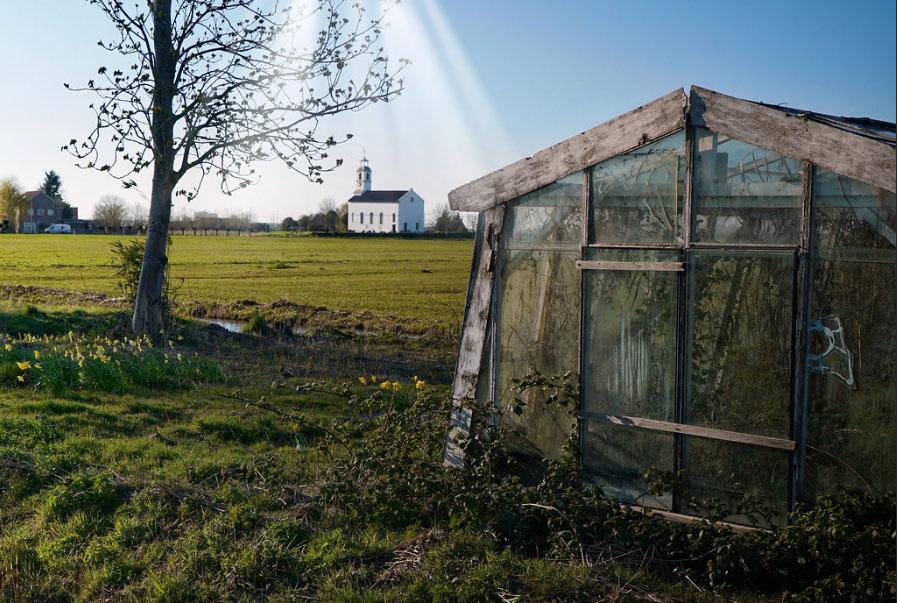 Hope in dark times
Hope in dark times
This was taken in the first week after having landed back in Holland from Senegal, West-Africa (which had been our home for the last 15+ years). The seriousness of the worldwide situation dawned on me and I had to reset my thoughts. Going out for a bike ride with my camera often helps to calm my mind and see the world with different eyes. I spotted this familiar scene but within a different light. It spoke to me in a symbolic way: choose hope (lit-up church in the background) during dark (Corona) times (broken down greenhouse)... I felt like, especially at this time, we all have a responsibility to care for the world around us and take time to REFLECT on our life and how we have lived it so far. It also became more clear around this time that nature was prospering by the world that had been put on hold—we, as (God's) people, have a task to take good care of the world given to us.
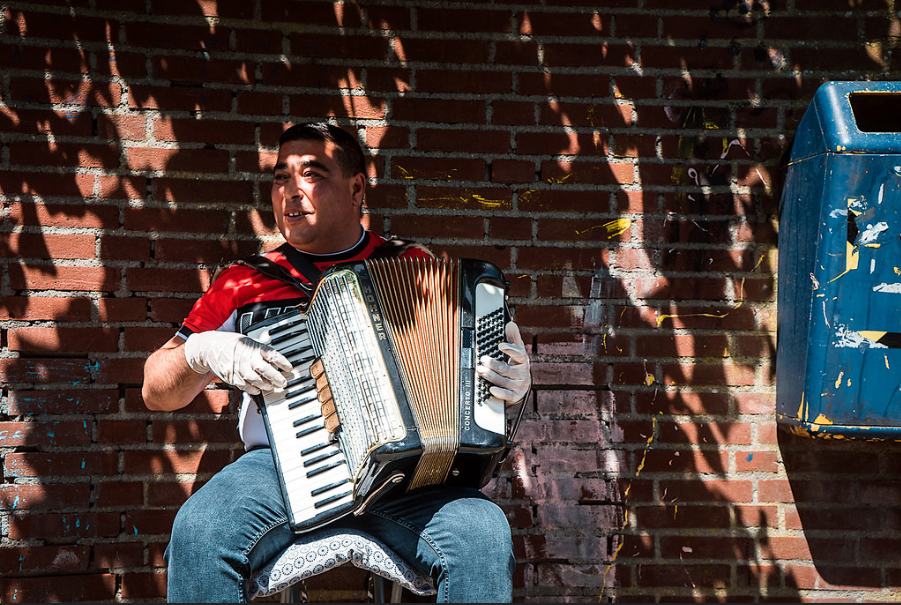 Music man
Music man
Me and my friend passed by this man when visiting a smaller town to shop and document how COVID-19 had changed life for this area of our country. I directly noticed his gloves and was wondering why he would wear them while playing his instrument. Until I realised people would (hopefully) give him some change he had to touch. We talked a little and I asked him if I could take his photo. He told me he had been coming to this exact spot for 15-plus years while greeting people passing by during our conversation. The image struck me because music can comfort the heart especially during challenging times like these. Grateful for this gentleman simply showing up, especially when life is tough. The shadow play emphasizes this.

